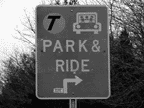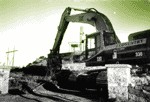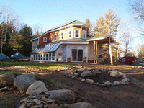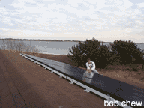
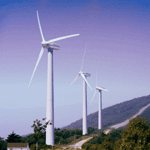
ISSUES INFORMATION
ECONOMIC DEVELOPMENT - For too long economic development has been something that the elite have done. Therefore we have an economy based on rules that work for the elite and that harm the poor and the planet. It is time to transform economic development into a community based process, and thereby create jobs in ways that both end poverty and heal the planetary ecosystem that we rely upon.
This transformation will take many different kinds of activity. One is to shift taxation away from job creation towards taxes on the depletion of natural resources and pollution. Carbon taxes, depletion taxes, pollution taxes, and similar innovations would dramatically reduce the amount of pollution and depletion going on while providing the revenue we need to run governments, and if the amount of pollution and depletion of resources dropped dramatically, the need for government spending would also drop.
Another key concept to remember is that there is a real difference between prosperity and economic growth. It is easy to imagine scenarios in which economic growth leads to community disaster, such as when the dike holding back the cyanide residue of gold mining gives way and all the life in the river disappears, or a factory that brings cancer to the neighborhood. Prosperity is by definition widespread and non toxic. If our economic development goals were prosperity oriented rather than growth oriented it would be much easier to create a sustainable economy.
ENERGY - Energy The electric utilities are our nations largest industry- so it should come as no surprise that about a third of our nation's air pollution is attributed to electrical generation. Every single oil company currently predicts that oil extraction will peak sometime in the next 5-25 years, and recent oil price spikes are a forewarning of the effects this depletion will have on our economy. Meanwhile, scientists are trying to determine just how fast global warming is happening- and what the long term effects will be.
But in the midst of this disturbing news, we learn of fascinating new developments that might address these problems- and build and even better world. Fuels cells, photovoltaics, wind turbines and other technologies- all capture the imagination of those trying to build an economically and environmentally sustainable future.
But the issues are complicated. Fuel cells are not an energy source, but rather a means of generating electricity from a fuel, hydrogen. Where will we get this hydrogen? Wind energy is the fastest growing segment in the world energy industry today. But are we willing to accept the site of wind turbines along our mountains and coasts? Solar and wind sources are also intermittent- they work when the sun shines and the wind blows. How can we integrate these energy sources into an economy that works "24/7"? What are the economic costs and benefits of the various energy sources available to us, and how do environmental issues enter into the equation? Can wind and solar ever be significant producers of energy for our society?
Certainly there are huge problems with our current energy sources. And there are no easy solutions. But there are solutions out there. We live in an exciting time when we have the need, and opportunity, to reach for these new sources of energy...
POLITICS AND GOVERNMENT - As both poverty and pollution worsen, as the oceans become depleted and the forests disappear, we often ask ourselves why doesn't our government do something to solve the problems. The answer seems to be that the government seems to follow the golden rule, "them that has the gold makes the rules". Therefore our government works primarily for the depleters, speculators and polluters rather than for a healthy planet and strong communities.
If we think carefully about what it will take to make our government stop siding with those people who benefit from the move away from sustainability what we see is the need for campaign finance reform so as to take away the power of money in politics, the need for political parties that are not beholden to the rich, and a public education campaign around the real nature of the economy. Given the rules under which we play politics in the United States, it is a very tall order. But if we look at the progress we have made against pollution in the last 30 years, and the citizens movements that have grown around protecting the natural resources of the planet, there is still some hope that the transformations can be made.
POPULATION- On or around October 12, 1999 there were 6 billion people on Earth. At the beginning of this century the worldıs population was less than 2 billion- the human population has tripled this century. In 1987 there were 5 billion people- the sixth billion took a record low of 12 years to be born. The impact we all have on the Earth is tremendous.
SPRAWL - Poorly planned development is threatening our environment, our health, and our quality of life. In communities across America "sprawl" - scattered development that increases traffic, saps local resources and destroys open space - is taking a serious toll. From Connecticut to California sprawl is increasing air and water pollution, devouring wetlands and forests, and burdening our communities with the social and economic costs of unplanned growth. But runaway growth is not inevitable. Hundreds of urban, suburban and rural neighborhoods are choosing to manage sprawl with smart growth solutions. These solutions, including establishing urban growth boundaries, preserving farmland and green space, investing in alternate forms of transportation, and building compact pedestrian-friendly neighborhoods, can help manage growth and control sprawl.
Sprawl destroys more than one million acres of parks, farms and open space each year. This threatens America's productive farmland, and turns our cherished parks and open spaces into strip malls and freeways. Our wetlands - nature's water filters - are also under attack. Each year more than 100,000 acres of wetlands are destroyed, in large part to build sprawling new developments. Since wetlands can remove up to 90 percent of the pollutants in water, wetlands destruction leads directly to polluted water.
Sprawl worsens the damage from killer floods. Sprawl increases the risk of flooding. Development pressures lead to building on floodplains and the destruction of wetlands, natural flood-absorbing sponges. In the last eight years, floods in the United States killed more than 850 people and caused more than $89 billion in property damage. Much of this flooding occurred in places where weak zoning laws allowed developers to drain wetlands and build in floodplains. Our tax money subsidizes new sprawling developments, rather than improving our existing communities. Sprawl costs our cities and counties millions of dollars for new water and sewer lines, new schools, and increased police and fire protection. Those costs are not fully offset by the taxes paid by the new users. Instead, sprawl forces higher taxes on existing residents and hastens the decline of our urban tax base. Sprawl crowds our children's schools. Sprawl creates crowded schools in the suburbs and empty, crumbling schools in center cities. New development puts more children in suburban schools, but does not pay for the new schools that inevitably must be built.
TRANSPORTATION - Sprawl lengthens trips and forces us to drive everywhere. The average American driver spends 443 hours per year - the equivalent of 55 eight-hour workdays - behind the wheel. Residents of sprawling communities drive three to four times as much as those living in compact, well-planned areas. Adding new lanes and building new roads just makes the problem worse - studies show that increasing road capacity only leads to more traffic and more sprawl. The highways that are built to sustain these suburbs add to our pollution and energy problems, and increase our dependence on an automobile way of life which is unhealthy, anti-social, and unsustainable.
As sprawl increases our reliance on cars and driving, it makes our air dirtier and less healthy. We must use transportation alternatives. Take the bus, ride the trolley, hop on your bike, walk to the store, take the commuter ferry!! Make a alternative transit choice! See that your community is planning pedestrian-friendly development where people have transportation choices, such as commuter trains and bus service; or that the State is directing new highway transportation dollars to existing communities to improve safety for walkers, bicyclists and drivers, and to promote public transportation choices.
TRADE AND SUSTAINABILITY - Trade is an integral part of the human identity. People have always exchanged what they have in abundance for something that their neighbors have. Unfortunately the current situation has been constructed in a way that the people who benefit the most from trade have been able to design a system in which trade takes precedence over all other concerns. Rules to protect the environment, communities, or the local economy are all considered restraints of trade and can be over ruled by secret panels composed of faceless bureaucrats and trade lawyers.
Given that this system has lead to ecological and community disasters it is no surprise that the people of the world are rising up to overthrow such an inherently evil system. No longer will we accept free trade if free trade means that local content and environmental laws shall be overturned, no longer will we accept free trade if it means sweatshops replace local manufacturing. The Fair Trade movement is intimately connected to the move towards a sustainable economy and real democracy on the planet.
